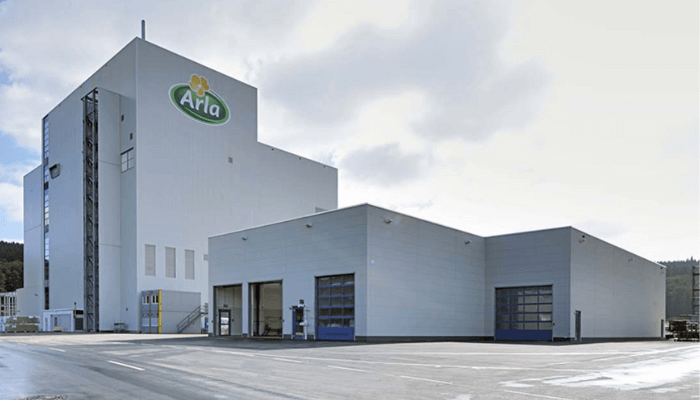Arla Foods Nigeria, the maker of Dano Milk, is marking its 10th anniversary this week, highlighting a decade of expansion in Africa’s most populous nation while deepening its bet on local milk production to reduce the country’s reliance on imports.
The Danish farmer-owned cooperative, which entered the Nigerian market in 2015, has invested heavily in both consumer products and backward integration, building one of the most advanced dairy farms in West Africa.
From its Lagos-based factory in partnership with Tolaram Group to its 300-hectare Arla-Dano farm in Kaduna, the company has sought to balance commercial growth with support for smallholder farmers and broader government ambitions for food self-sufficiency.
“Marking 10 years in Nigeria is both humbling and inspiring for us as we reflect on our journey and achievements, despite many challenges,” Peder Pedersen, managing director of Arla Foods Nigeria, said at the anniversary event in Lagos.
“From our very first day, we set out to not only bring trusted brands like Dano and Lurpak to Nigerian households, but also to play an active role in building the local dairy industry.”
Read also: Nigeria needs to overhaul dairy farming to cut $1.5bn milk import – MD, Arla Foods
Nigeria spends an estimated $1.5 billion annually on dairy imports, according to government data, with local production covering less than 40% of demand. Arla’s expansion aims to chip away at that gap. The Damau farm in Kaduna, which received its first shipment of 215 Holstein heifers from Denmark in 2023, has capacity for 1,000 cows and is designed as a hub for technology transfer and farmer training.
Pedersen said Arla is partnering with the Federal Ministry of Agriculture, the newly created Ministry of Livestock Development, and state governments to develop a more self-reliant dairy sector.
Since 2019, the company has trained about 1,000 farmers in northern Nigeria on animal welfare, feed management, and productivity improvements, helping to raise yields in a sector long dominated by nomadic pastoralism.
The 10-year celebration coincides with Arla Foods’ 25th anniversary globally, underscoring its cooperative heritage. Owned by 8,400 farmers across Europe, Arla has increasingly turned to emerging markets such as Nigeria to fuel growth. Dano powdered milk has become one of the most recognised brands in Nigerian households, competing with global rivals like Nestlé’s Nido and FrieslandCampina’s Peak.
Arla’s local operations employ hundreds of workers and are poised for further expansion. The company plans to launch a yogurt factory in Kaduna in 2025, using fresh milk sourced entirely from its farm and partner farmers. It also inaugurated its first “open farm day” in 2024, opening the Damau facility to farmers, students, and stakeholders as a center of dairy excellence.
“As we celebrate our tenth year in Nigeria alongside Arla Foods’ 25th anniversary globally, we look to the future with confidence,” Pedersen said. “We will continue to strengthen our impact locally, support dairy farmers, and deliver tasty and nutritious dairy products for generations to come.”
For Arla, the anniversary is less about looking back than about positioning itself as a long-term partner in Nigeria’s agricultural transformation. With demand for dairy projected to keep rising alongside population growth, the company is betting that investment in local capacity will secure its place in a competitive and politically sensitive market.

